Resources
A collection of publications and websites broken down into bite-sized pieces and summarised to help you find what you need,
when you need it.
Frameworks and Guidelines for City Food Policy
With such a wealth of information from organisations around the world, it can be hard to know where to start. We have summarised the content of some of the most useful guidelines to help you find what you are looking for.

Urban Food Strategies: The Rough Guide to Sustainable Food Systems
- The guide aims to provide motivation and support to a range of people interested in building more sustainable urban food systems.
- Offers a good introduction for those unfamiliar with what an urban food strategy is and the rationale for one.
- Provides a step-by-step overview of the stages of food strategy development, from stakeholder mapping and engagement to food system assessment, goal setting, etc.
- Gives good examples of strategies from other cities, although the focus is more on the Global North.
- Perhaps its best feature is a large table with specific actions, arranged by themes, that cities can take at each stage of the food chain and examples from cities that have implemented them.
Urban Food Strategies: The Rough Guide to Sustainable Food Systems
Foodlinks (2013)
Local Government Planning for Community Food Systems: Opportunity, innovation and equity in low- and middle-income countries
- Approaches food systems from the perspective of local urban planning but the report is useful for local and regional authority staff of all kinds.
- Especially relevant to Low- and Middle-Income Countries as it draws on experiences from Ghana, Jamaica, and India.
- Proposes an approach to food systems planning called the Opportunity-Innovation-Equity framework that aims to build on existing strengths in a community, propel innovation, and ensure that the well-being of those at the margins of society are protected.
- Section 3 provides examples of plans and policies implemented by local governments to strengthen food systems for broader community well-being, such as formal plans, financial incentives, and regulatory mechanisms.
Local Government Planning for Community Food Systems: Opportunity, innovation and equity in low- and middle-income countries
Food and Agriculture Organization of the United Nations (2021)
Enabling sustainable food systems: Innovators’ handbook
- Not a resource targeted to local government officials alone, but has a wealth of information for a broad range of food system innovators, including farmers, researchers, traders, consumer groups, NGOs, as well as local government staff.
- Covers 4 main themes: engaging consumers, producing sustainably, getting products to market, and organising collective action.
- Handbook is organized as a “choose your own adventure” format, making it very easy to access specific topics rather than having to read the full report.
- Can be read starting from any chapter, depending on specific interests.
- Can also be a useful training course or in a strategic planning meeting among stakeholders who collaborate on a sustainable food system initiative.
Enabling sustainable food systems: Innovators’ handbook
Food and Agriculture Organization of the United Nations (2020)
Food and Nutrition Security Principles for Food Systems Transformation - A Framework for Action Global
- The Framework for Action describes the Alliance’s seven principles for guiding food systems transformation: renewability, resilience, health, equity, diversity, inclusion, and interconnectedness.
- The principles can be helpful for cities in developing a vision for their food strategy but the document also offers a practical assessment tool to gauge your city’s alignment with each principle.
- This can help in the initial phases of defining local priorities though it would require a group effort and may be seen as too abstract an exercise by some stakeholders.
Food and Nutrition Security Principles for Food Systems Transformation - A Framework for Action Global
Global Alliance for the Future of Food (2021)
Global Networks & Declarations
Across the globe, cities are coming together to transform food systems at a regional level with global impact. Many networks and declarations have been established to allow cities to align their work and create a unified voice and direction. Not all of the networks below are open to new cities to join, but connecting with them informally or tapping into the publicly available research and publications can be very helpful to advance your work.
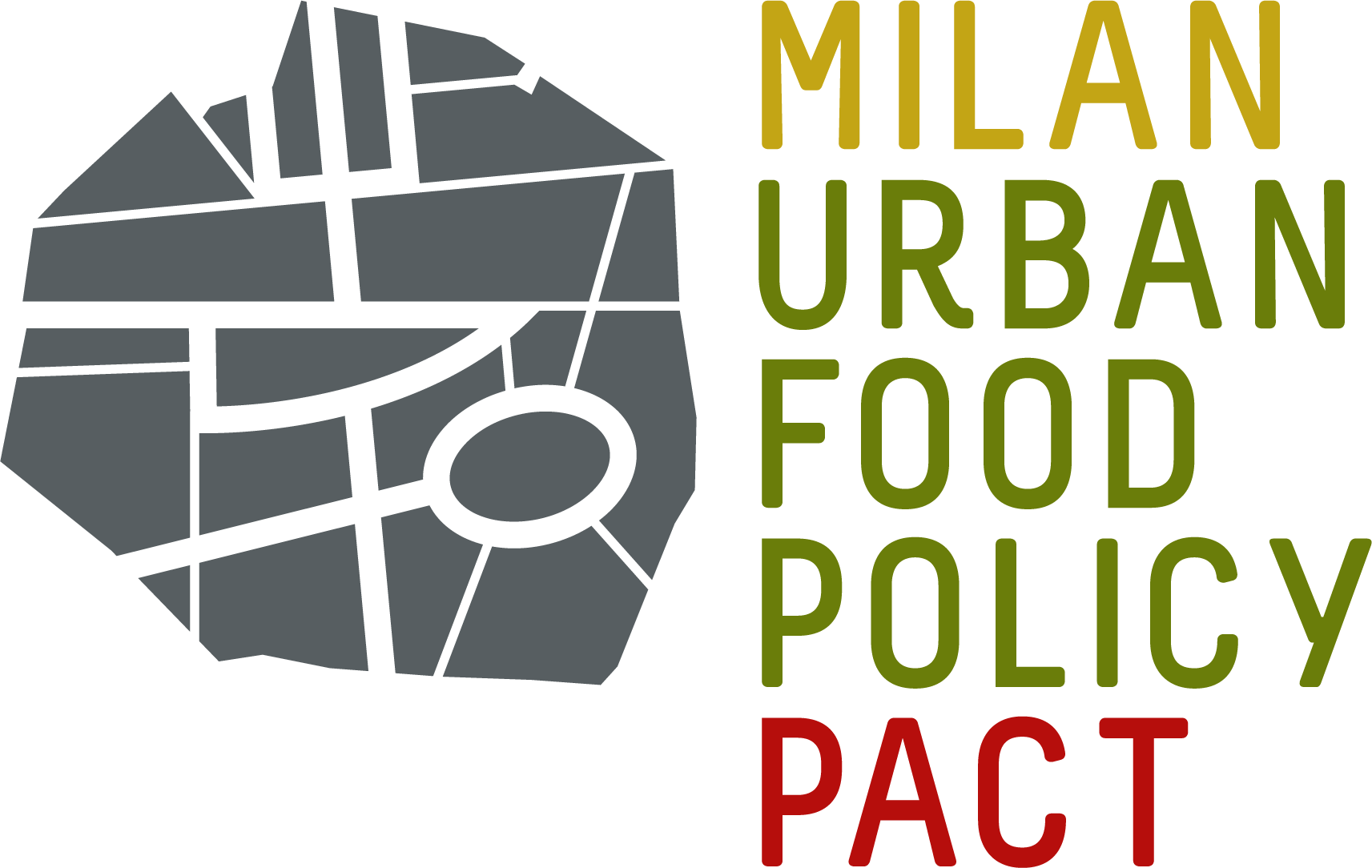
Milan Urban Food Policy Pact
- The Milan Urban Food Policy Pact is an international agreement among cities committed to developing sustainable food systems with the aim of fostering city to city cooperation and best practices exchange.
- The declaration is accompanied by a Framework for Action listing 37 recommended actions, organised in 6 categories.
- For each action there are specific indicators to support cities in monitoring progress, however the Pact has been critiqued for a relative lack of sustainability-related food indicators.
- Working with the FAO, they also offer the MUFPP Monitoring Framework Handbook and Resource Pack that provides practical steps, tips, and a methodology for cities wishing to adopt and implement a monitoring framework.
- While these resources are available to anyone, signing the pact can help raise your city’s profile as a food policy leader and build local political champions.
- There are no fees involved in becoming a signatory. Interested cities can contact the MUFPP Secretariat for information about signing the pact.
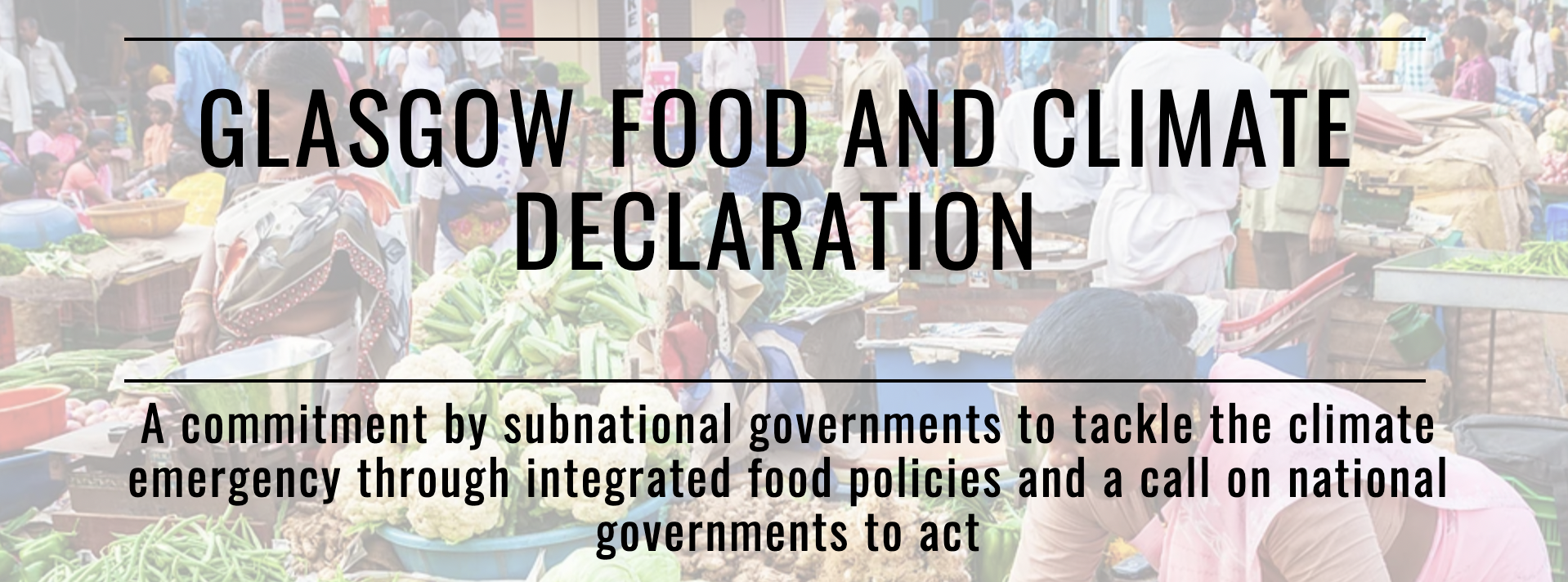
Glasgow Food and Climate Declaration
- Led by Nourish Scotland and IPES-Food, the declaration offers an opportunity for local governments to share their commitment to tackling the climate emergency with an integrated food policy approach.
- The declaration builds on previous work, including the Milan Pact, with the timely aim of call for action among national and international policy makers at the COP26 climate meetings in Glasgow in November 2021.
- Subnational, regional, local and indigenous governments of all sizes are welcomed to become signatories by completing the online form.
Read the Glasgow Food and Climate Declaration
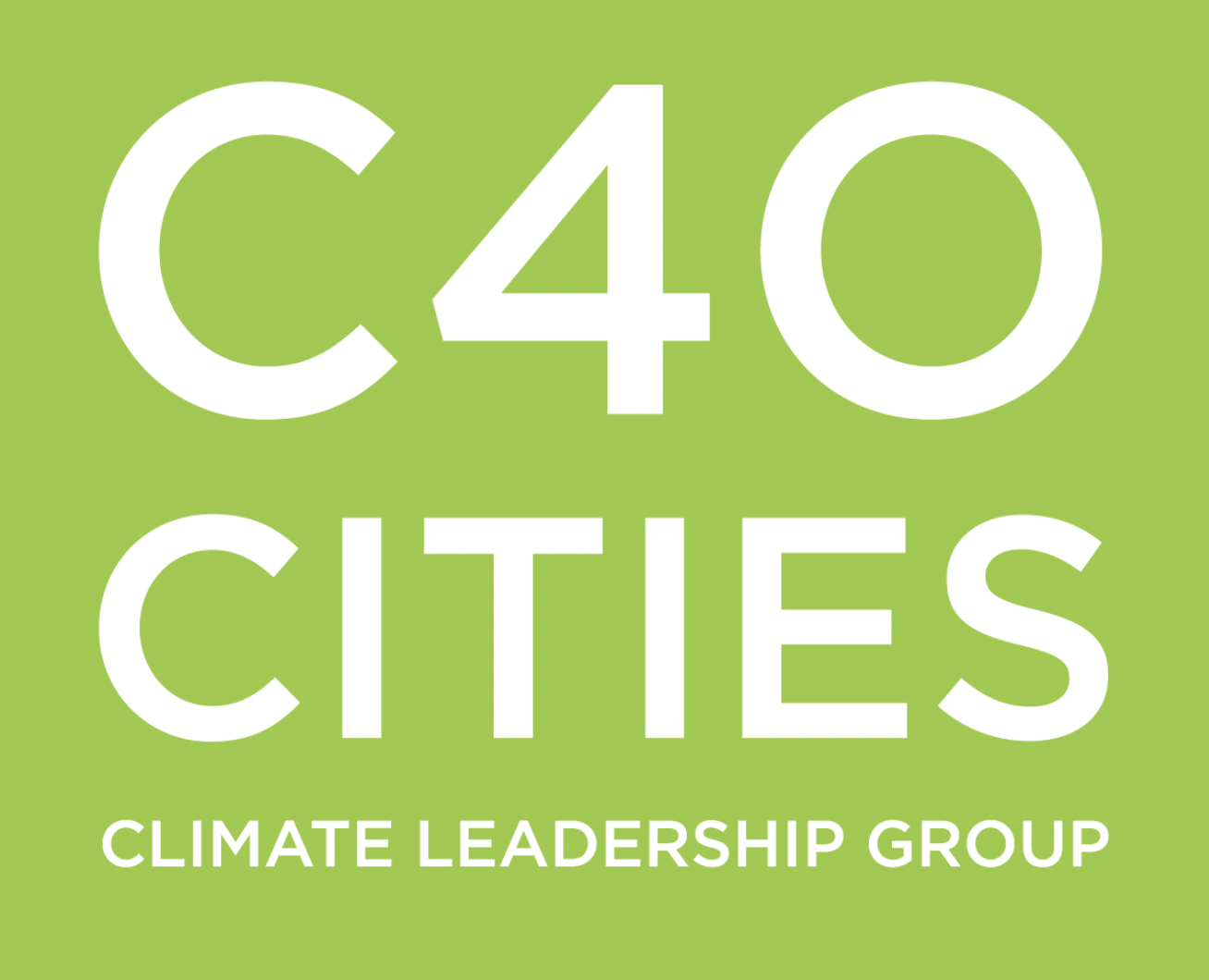
C40 Food Systems Network
- C40 is a network of the world’s largest cities committed to addressing climate change. Its Food Systems Network, in partnership with EAT Initiative, convenes officials in 54 cities to work together to achieve solutions to their most pressing food systems challenges.
- Members are encouraged to sign the C40 Good Food Cities Declaration that commits signatories to improve their city’s food procurement, support an increase in healthy plant-based foods, reduce food loss and waste and develop a formal strategy for implementing the measures within two years.
- The broader C40 network is only open to “megacities” that meet its leadership standards related to local-level climate action.
- Its website has many useful resources available to anyone interested in urban climate action and the role of local governments.
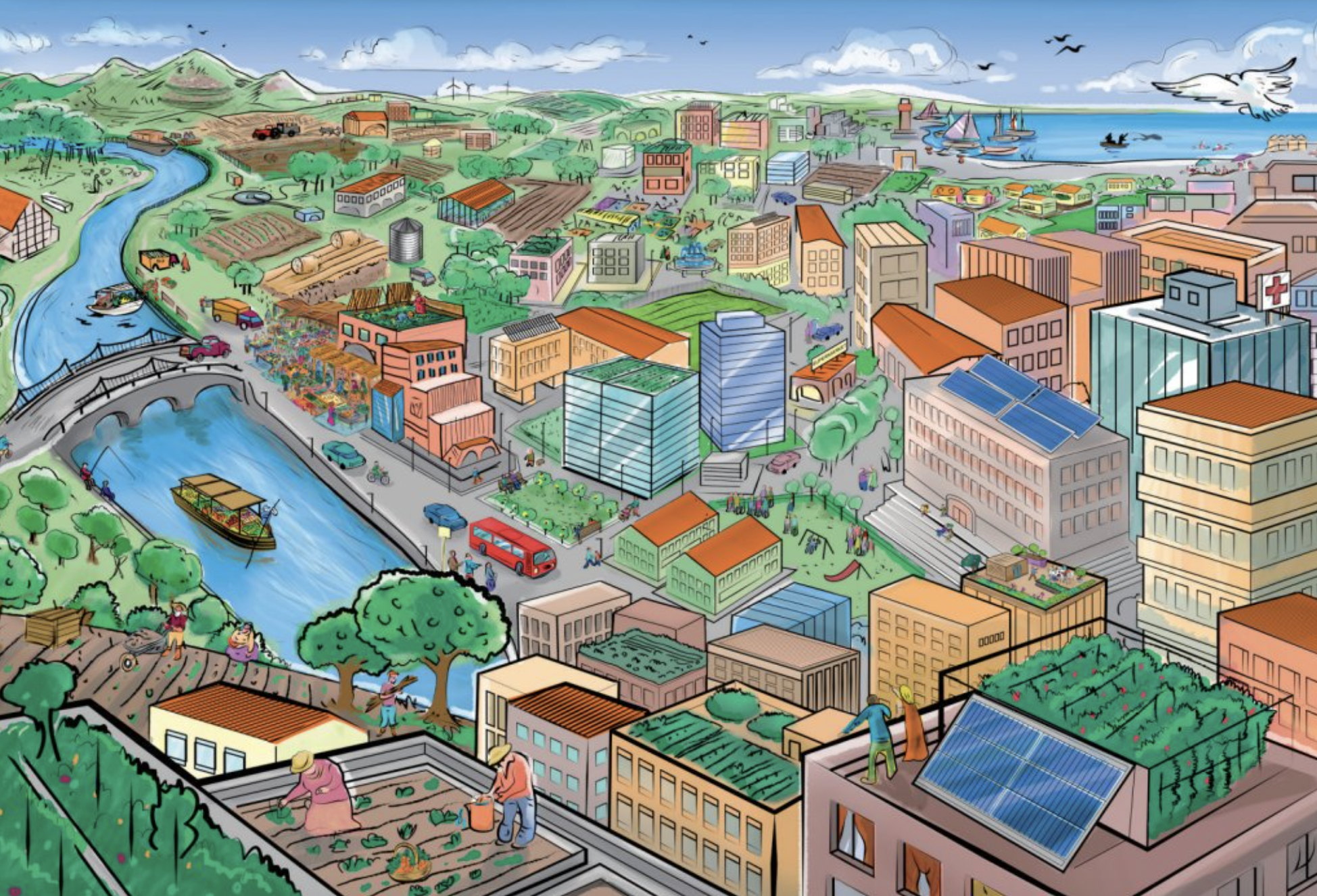
Food for the Cities Initiative
Food and Agriculture Organization of the United Nations
- The initiative’s website has links to a huge amount of food system research, but the key benefit is access to the Food for Cities email listserv.
- The email network has over 2500 members from 114 countries, including a global network of experts, from development practitioners to academia, connecting research and practice on sustainable food systems and urbanization.
Other Networks
Global Alliance for the Future of Food
- A global alliance of philanthropic foundations focused on getting sustainable food systems on the political, economic, and social agenda.
- A project of the Johns Hopkins Center for a Livable Future. Its website offers research and training resources related to food policy councils, users can also sign up to its popular email listserv.
Reports with Case Studies & Best Practices
Learning from other cities’ successes and failures is one of the most effective ways to inspire action globally. The resources in this section tell how cities of all kinds from different regions have implemented changes and overcome barriers along the way.
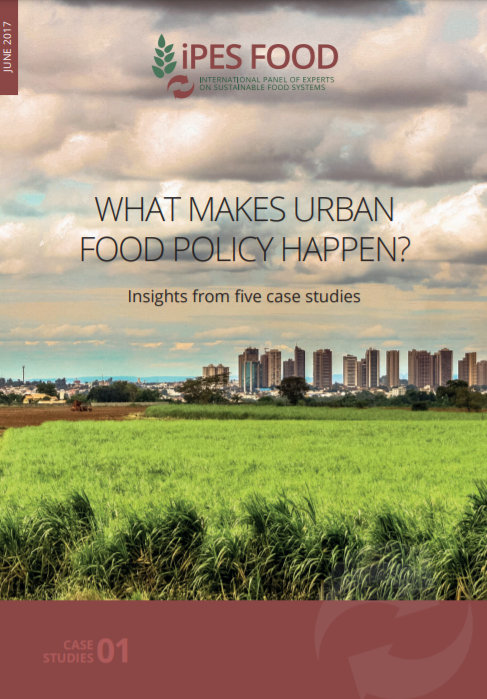
What makes urban food policy happen? Insights from five case studies
- The report offers insights into the factors that enable the implementation of urban food policies and examples of how to deal with challenges.
- The case studies cover diverse regions – Belo Horizonte, Nairobi, Amsterdam, Toronto, and Detroit.
- The sections following the case studies analyses the insights and provides guidance on issues such as the importance of gathering data on your city’s food challenges, engaging key city departments, identifying relevant city powers, and leveraging and sustaining political commitment.
- The report is helpful for cities of any size or any starting point, from small towns that are taking their first steps in designing food-related policy, to big cities that are striving to maintain highly-developed, integrated policies.
Find out more on What makes urban food policy happen? Insights from five case studies
International Panel of Experts on Sustainable Food Systems (2017)
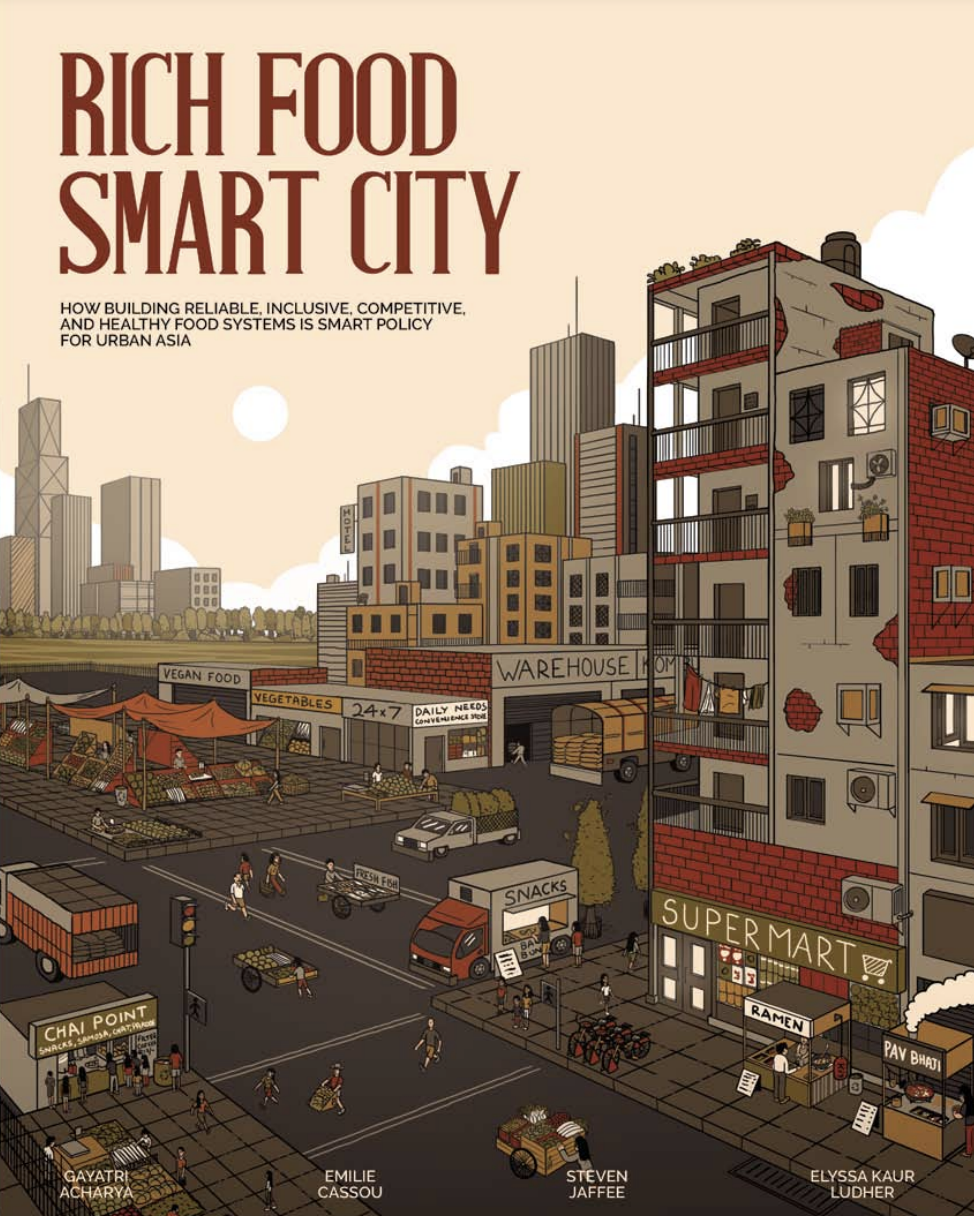
RICH Food, Smart City : How Building Reliable, Inclusive, Competitive, and Healthy Food Systems is Smart Policy for Urban Asia
- The report offers a detailed analysis of food-related issues across Asia, drawing upon the first systematic study of urban food policies in 170 cities across the continent.
- It calls upon cities to foster reliable, inclusive, competitive, and healthy (“RICH”) food policies.
- The survey research provides a lot of insights into the state of urban food issues across Asia and also some reflections on the impact of Covid-19 recently.
- The report concludes with a list of specific recommendations for key stakeholders, including urban planners, policy makers, national governments, the food industry, researchers, and civil society organisations.
Find out more on the RICH Food, Smart City : How Building Reliable, Inclusive, Competitive, and Healthy Food Systems is Smart Policy for Urban Asia
World Bank (2021)
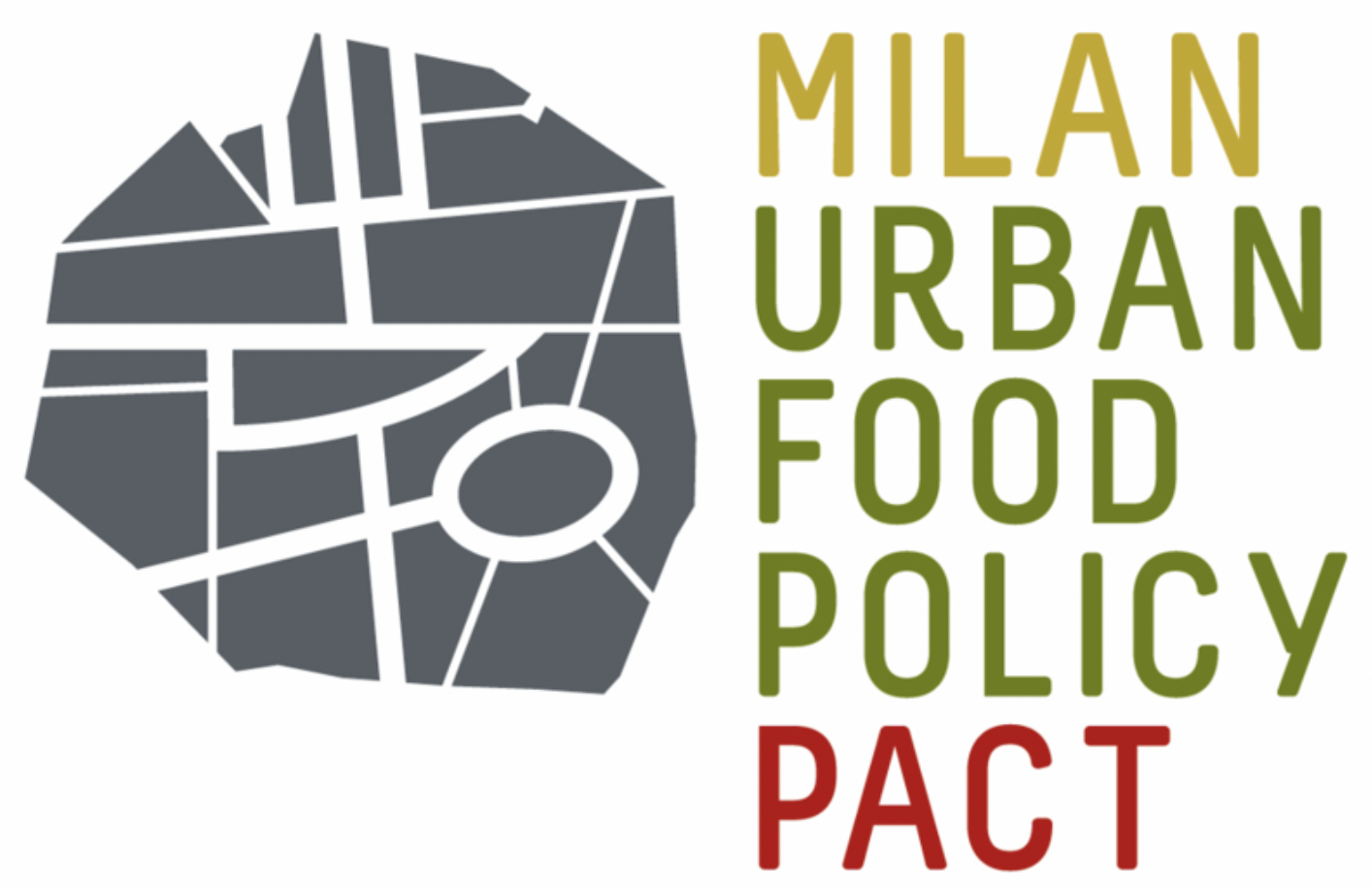
Milan Urban Food Policy Pact
The document is a companion to the pact and the framework for action, providing dozens of case studies of initiatives from member cities, including Toronto, Belo Horizonte, Tel Aviv, and Dakar. The examples cover a wide range of food system actions, such as nutrition promotion, urban agriculture and reducing food waste.
Find out more Milan Urban Food Policy Pact - Selected Good Practices from Cities (2015)

Food Dialogues 2020 Report
Although the specific focus is South Africa, the report has a lot of useful insights for anyone wanting a more in depth understanding of the intersections of food with health, economics, culture, politics, and rebuilding from Covid. The report is accessible for those with little knowledge of food systems or years of experience. It explains key concepts such as food security “pillars”, and then analyses how they play out in South African cities.
Find out more Food Dialogues 2020 Report
South African Urban Food and Farming Trust (2020)
Other Resources
42 policies and actions to orient food systems towards healthier diets for all
- From the Centre for Food Policy at City University (UK), the report sets out 42 actions based on a review of expert reports, arranged by themes such as agriculture, business incentives, and public awareness actions.
- An analysis of food policy initiatives in 64 Canadian cities with descriptions of actions they’ve implemented and recommendations for strategies to make urban food policies successful.
City Food Policy and Programs: Lessons Harvested from an Emerging Field (2012)
- Analyses food policy programs in 13 cities (US & Canada) to find common themes in their development, implementation, and strategies they used in overcoming barriers to action.
10 Critical Actions for Transforming Urban Food Systems
- Based on feedback from FAO-sponsored food dialogue sessions, leading up to 2021 UN Food Systems Summit.
Useful Websites
We’ve come across a few other really useful websites that cut across different categories on our platform, so we’ve added them here. Each site has a huge amount of diverse content on healthy and sustainable food systems. They’re worth bookmarking as a resource now or in the future.
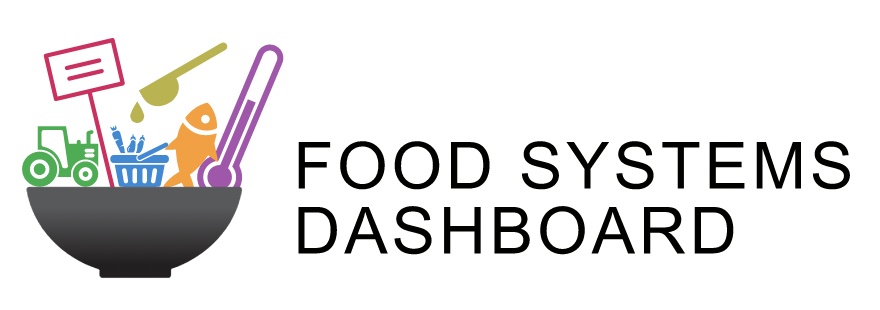
Food Systems Dashboard
- The website is an interactive tool for easy to access information on all aspects of food systems.
- Users can compare components of food systems across countries and regions. It offers over 150 indicators including production statistics, food affordability, diet and nutrition information, environmental measures, and many more.
- Data can be viewed on a map as well as on bar, line, and other chart types. Country Profiles allow users to view a set of 41 indicators for each country.
- The policy section highlights 42 actions that governments can take to promote healthier food systems.
Find out more on the Food Systems Dashboard
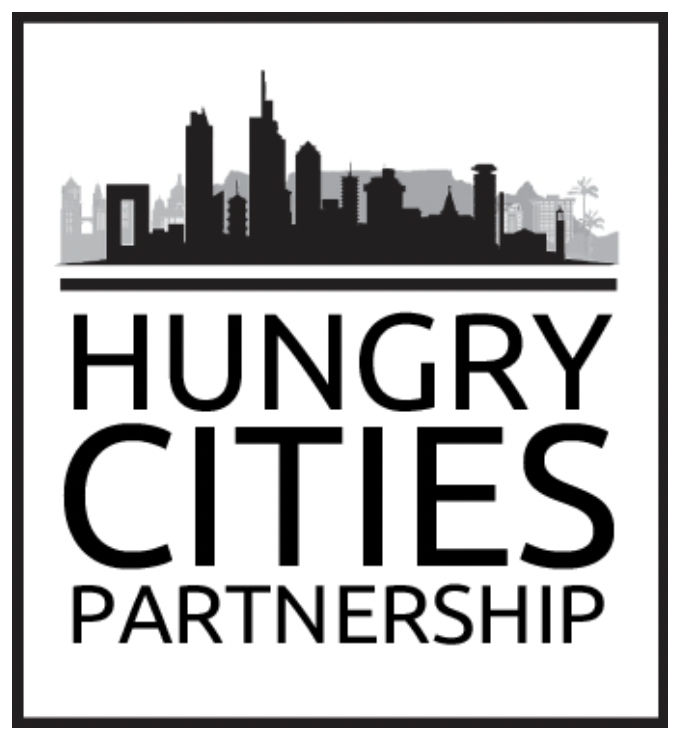
Hungry Cities Partnership
The Hungry Cities Partnership (HCP) is an international network of seven cities in LMICs and city-based partner organisations that focuses on the relationships between rapid urbanisation, informality, inclusive growth and urban food systems in LMICs.
- HCP conducts collaborative research, training and advocacy to provide innovative solutions for sustainable cities and food security.
- As part of its research phase, the HCP conducted three city-scale surveys investigating the state of the food systems of the partner cities.
- Its website offers numerous reports on topics related to urban food systems, household food security, and informal food sectors in LMICs.
Find out more on the Hungry Cities Partnership
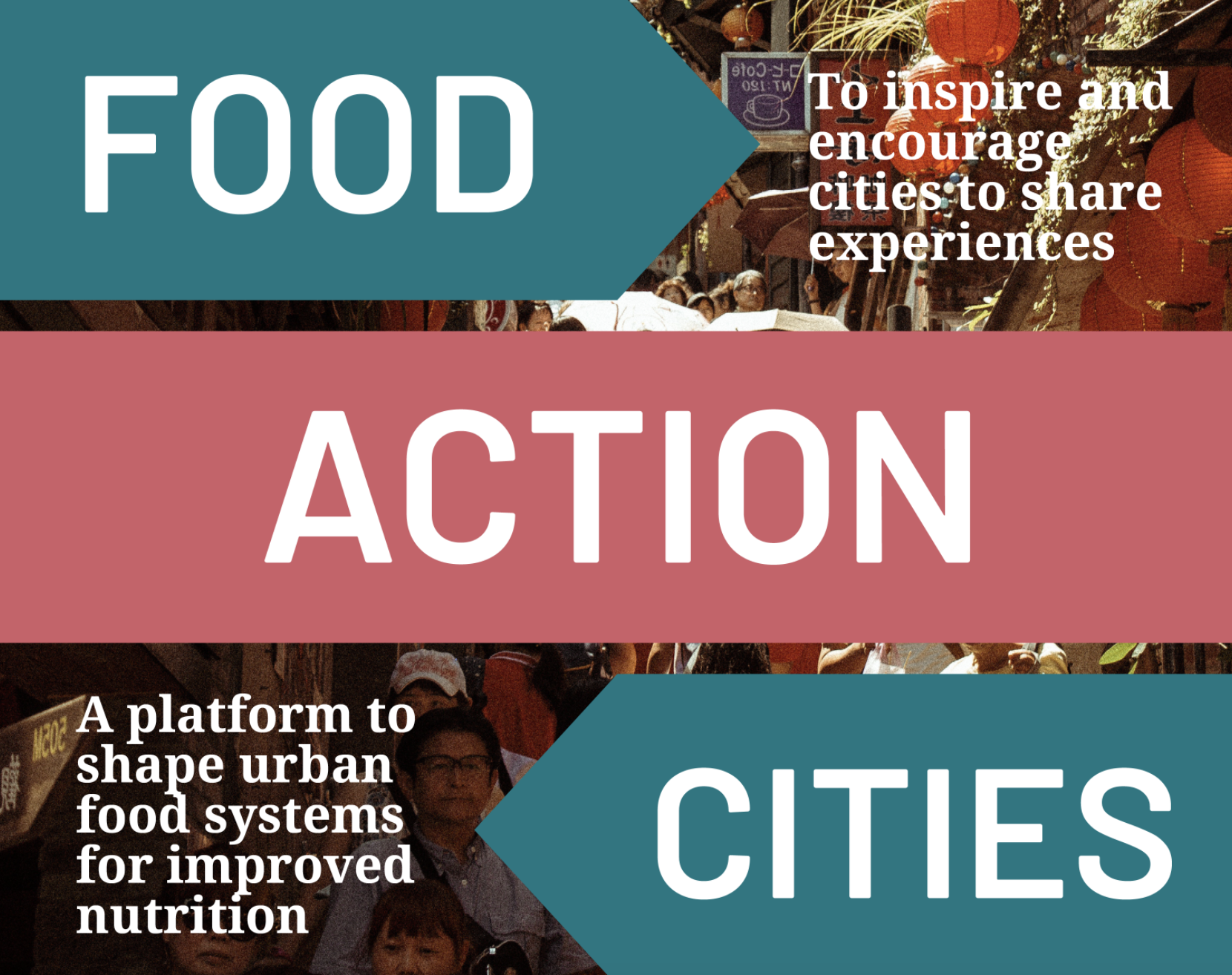
Food Action Cities
The platform is an easy to use, up to date resource for key information on urban food policy with a special focus on case studies from cities of all kinds. The resources and examples are arranged by food system themes and subject areas. Cities are encouraged to upload their own case studies through their online form.
Find out more on the Food Action Cities
Other sites
- Information on sustainable, equitable and resilient food systems in 10 African cities.
- Includes examples of best practices from urban Food System Labs that brought together social entrepreneurs, farmers, activists, businesses and policy makers.
Local Government Food Policy Database
- The database is a searchable collection of local public policies from the U.S. and Canada that explicitly support community food systems.
- It provides policymakers, government staff, and others interested in food policy with concrete examples of local public policies that have been adopted to address a wide range of food systems issues.
-
Website for the Foodlinks project (ended 2013) with a wealth of information on sustainable food systems, with a special focus on urban food strategy examples, publications and webinars.
-
Detailed summaries of more than 300 initiatives happening worldwide, though with a primary focus on France.


